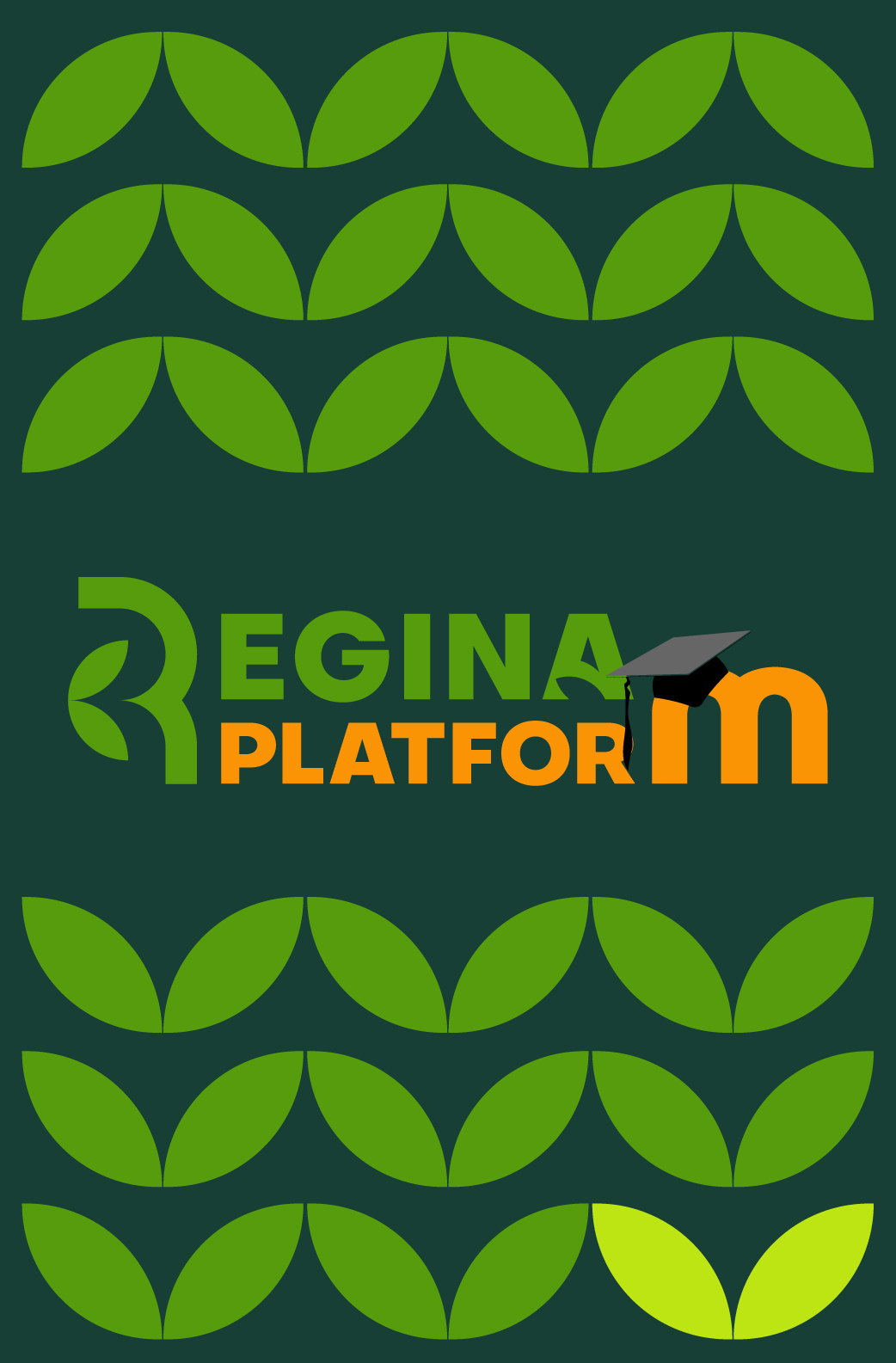National Workshop Hungary
The REGINA project, launched in November 2021, aims to explore the practice of regenerative agriculture in several European countries and to better understand the challenges to be overcome, supporting the adoption of soil-friendly and regenerative farming methods. The main objective of the workshop is to briefly map and discuss the situation of regenerative agriculture in Hungary, as well as to review and present the results of the project.
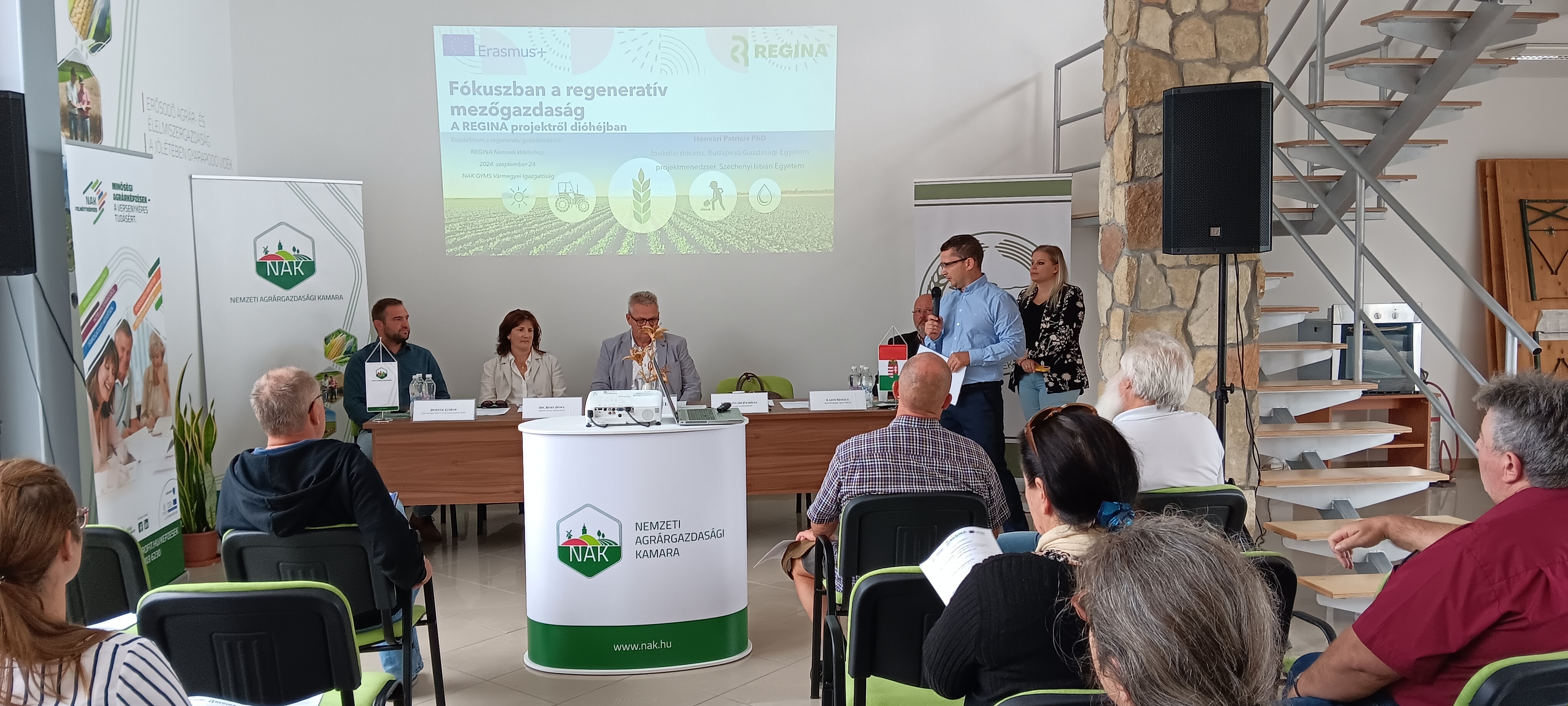
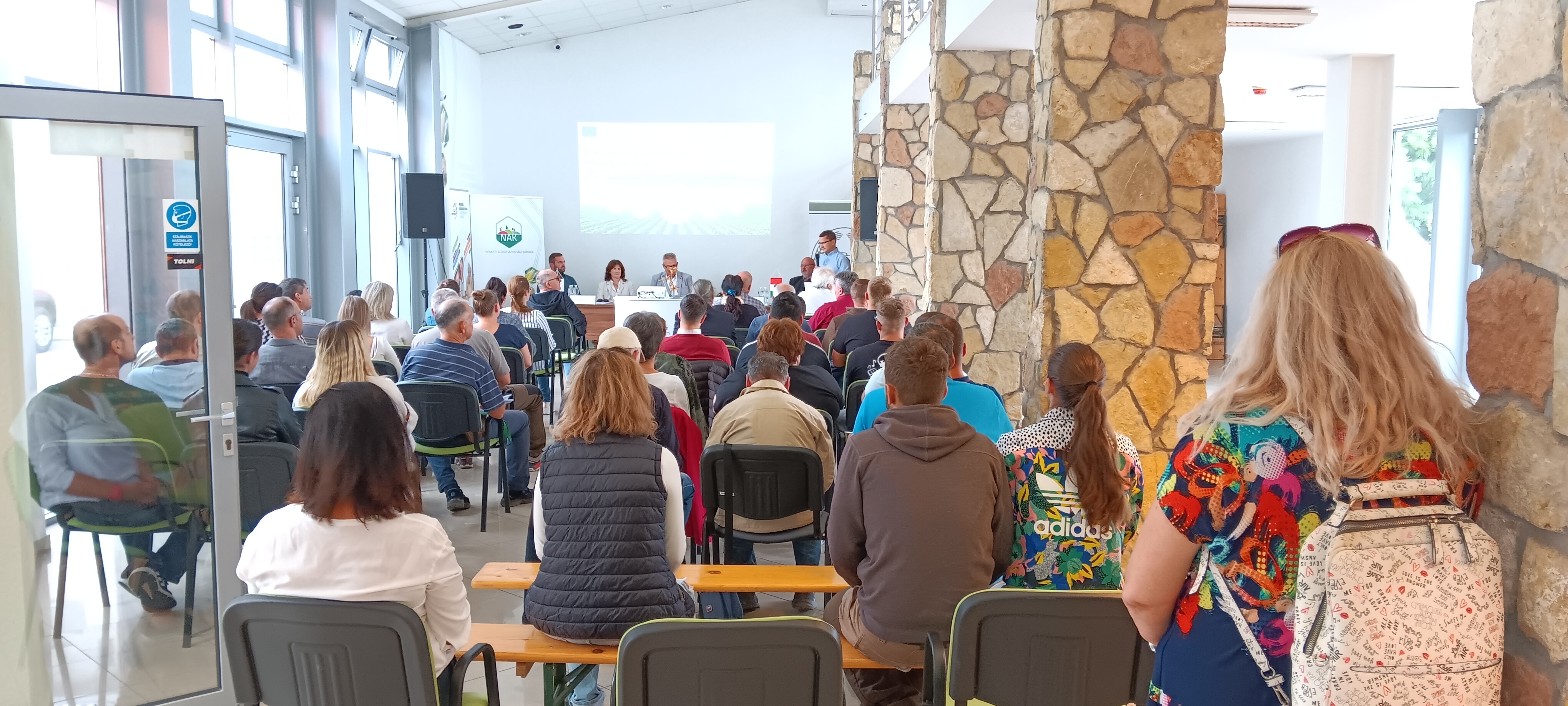
In addition to the Hungarian partners participating in the project (Széchenyi István University, Veres Péter Vocational Secondary School, GYMS MAGOSZ), all actors of Hungarian agriculture were represented, from primary producers to large companies, for example Kisalföld Mg. Zrt. University students, young farmers, middle-aged winemakers as high school teachers also were present in the group.
The invitation to the event was sent to the media operating in GYMS county, to colleagues of the National Chamber of Agriculture working in GYMS county, to the county delegates of NAK GYMS and to all farmers of the county (more than 7000 farmers).
In the first presentation, Dr. Patrícia Honvári, associate professor and project manager presented the REGINA project to the public under the title "Focus on regenerative agriculture: The REGINA project in nutshell", addressing 3 main questions: 1. What is regenerative agriculture? 2. What are the barriers behind the slow spread? (Recognizing RA) 3. How can we bridge the knowledge gap? (REGINA project)
In the second presentation, Dr. Dóra Beke, associate professor and professional leader talked about the educational results, methodology and trainings of the REGINA project. She emphasized that by completing the REGINA course, students will be able to understand the concept of regenerative agriculture and critically evaluate different soil management practices and methods. They will be able to select methods that fit into the RA approach and plan the regenerative crop production of a farm, based on RA guidelines.
In the third presentation, Gábor Derdák, President of the MAGOSZ Young Farmer Circle of GYMS County outlined the connection of digital farming with regenerative agriculture. He emphasized how important is in this process to rethink traditions, decision-making based on data (soil sample, yield data, plant and animal variety knowledge, meteorological data, etc.) and targeted treatment, input material reduction: cost reduction and environmental protection!
The presentations were closed by Mihály Lajos, managing director, who talked about the feasibility elements of soil-saving farming in Szigetköz. He emphasized the role and importance of tillage without rotation, with which above-average yields can be expected, which his farm has been proving for years.
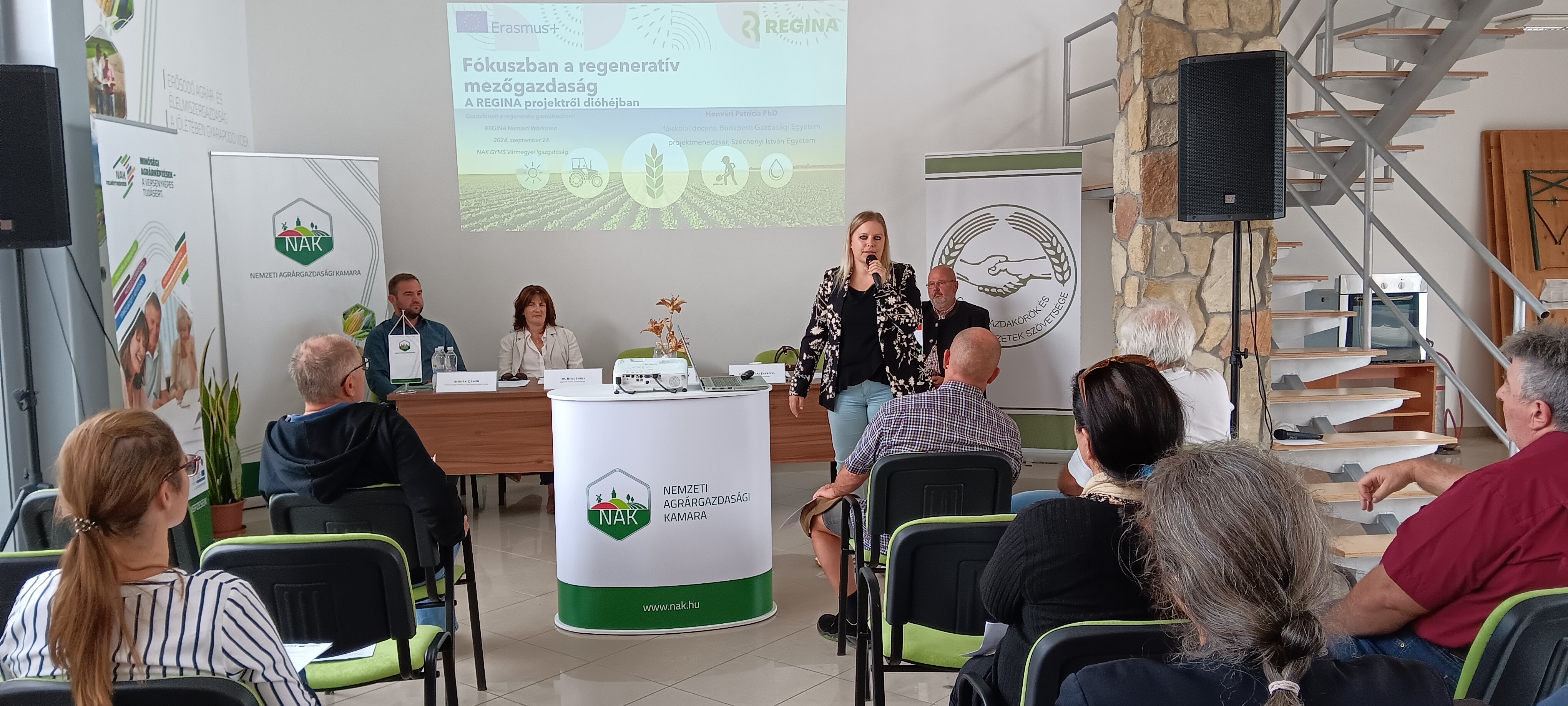
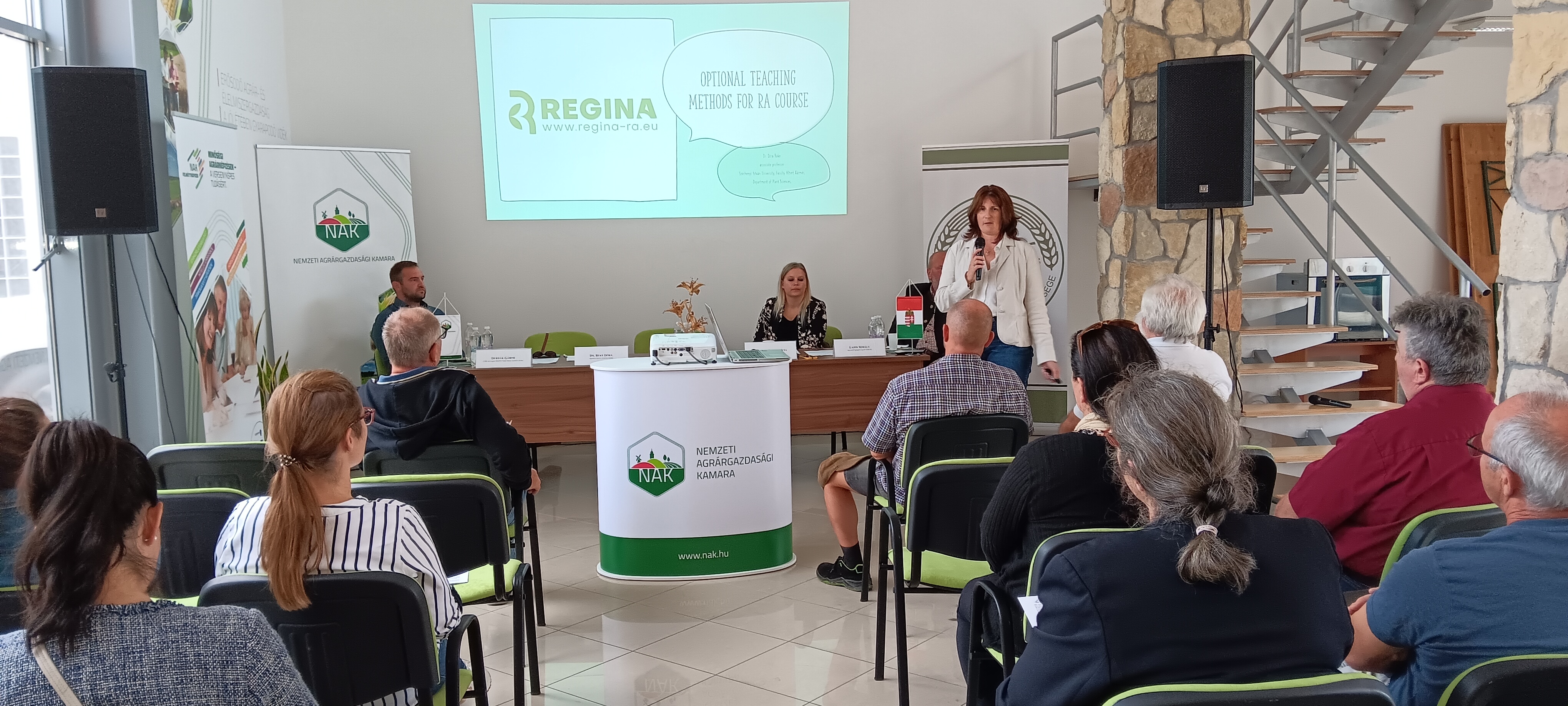
The topic was particularly topical, the participants were waiting for the speakers with great interest and many questions. The presentations were to the point, yet the information was conveyed in sufficient detail. At the end of our workshop, Dr. Dóra Beke, associate professor, was pleased to note that what she taught at the university is in harmony with the everyday practices and experiences of the farmers.
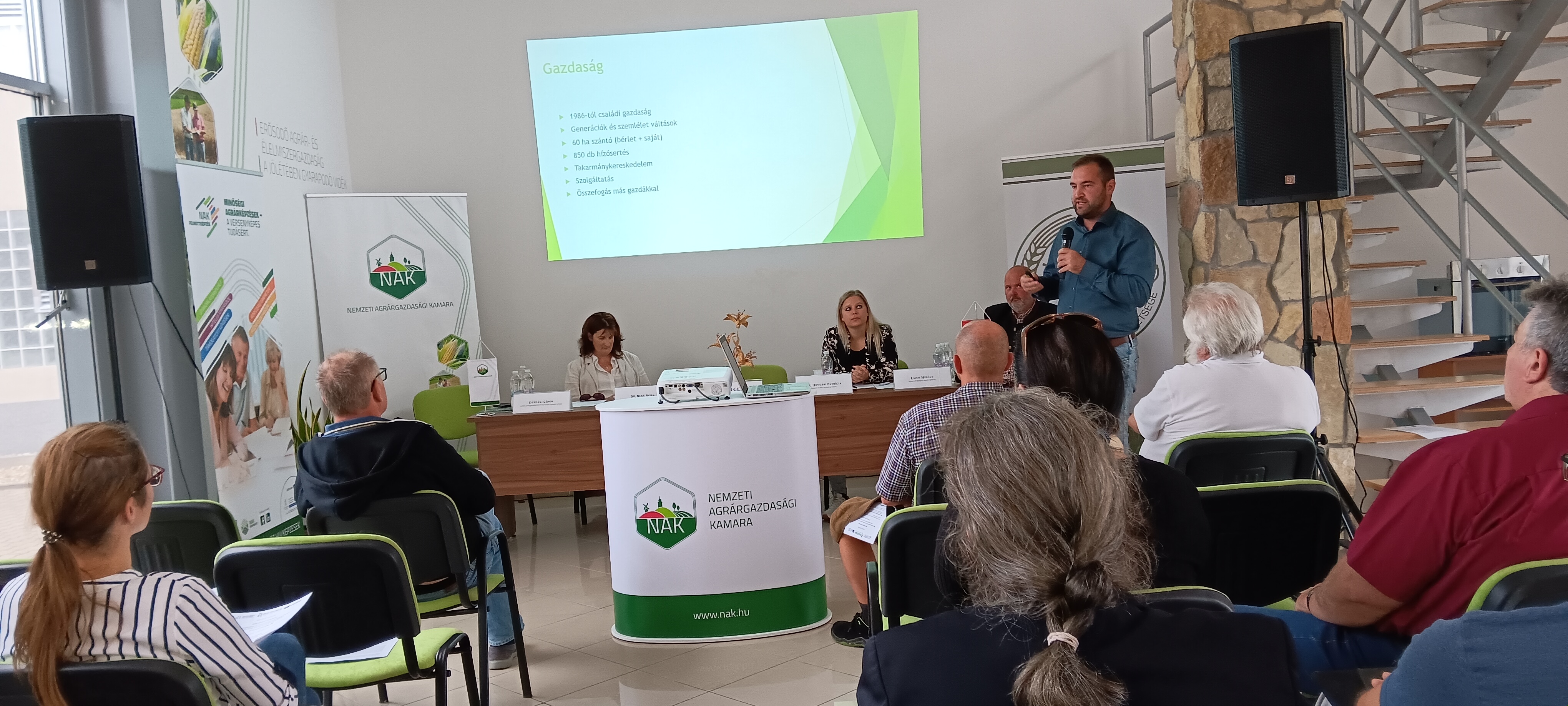
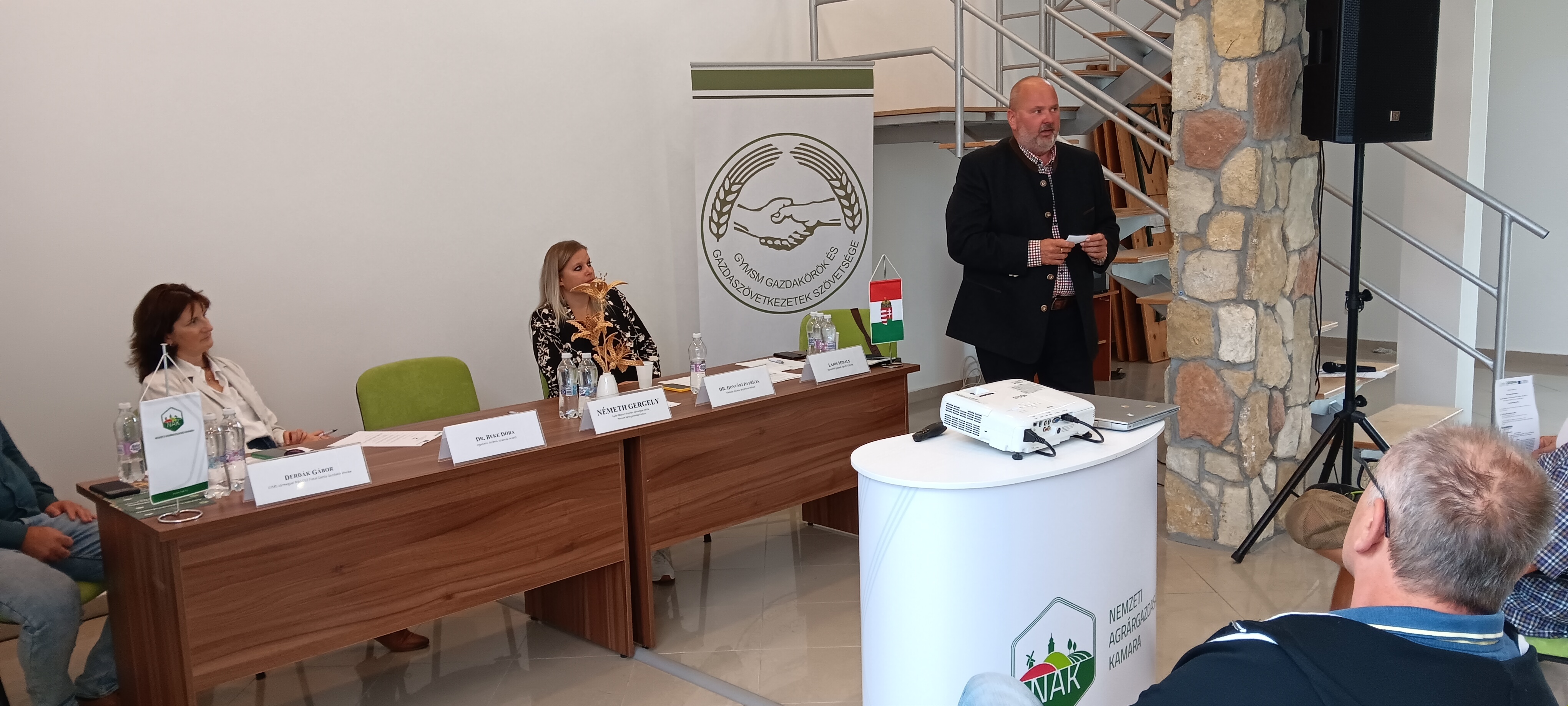

The REGINA project (No. 2021-1-HU01-KA220-HED-000027629) was funded by the European Commission. The content of this website does not necessarily reflect the views of the European Commission.
Call 2021, KA220 – Cooperation Partnerships in Higher Education
The European Commission’s support for the production of the publications does not constitute an endorsement of the contents, which reflect the views only of the authors, and the Commission cannot be held responsible for any use which may be made of the information contained therein.

